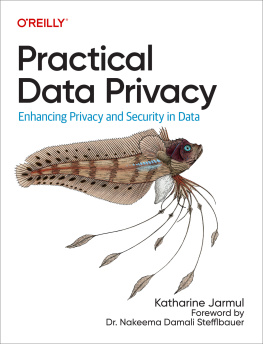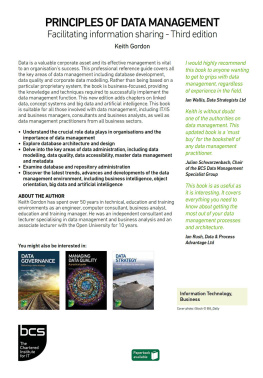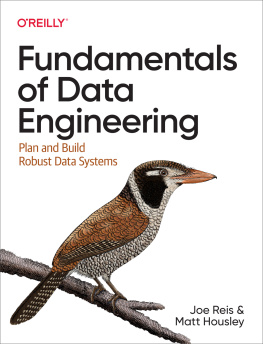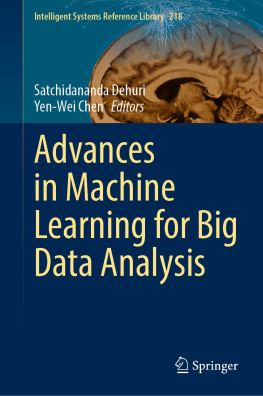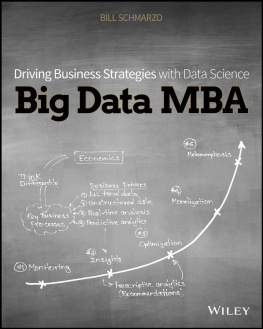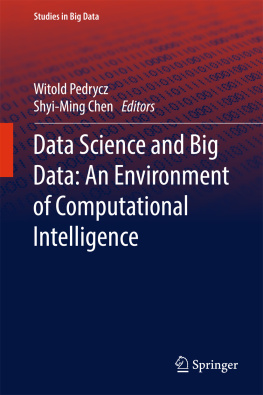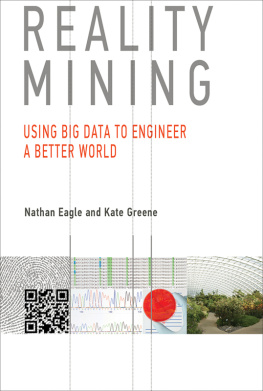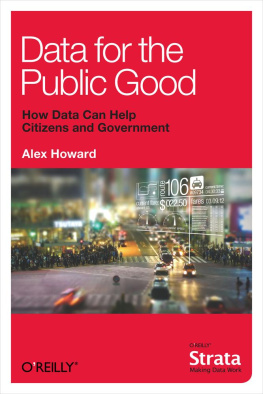Contents
Guide
Pagebreaks of the print version
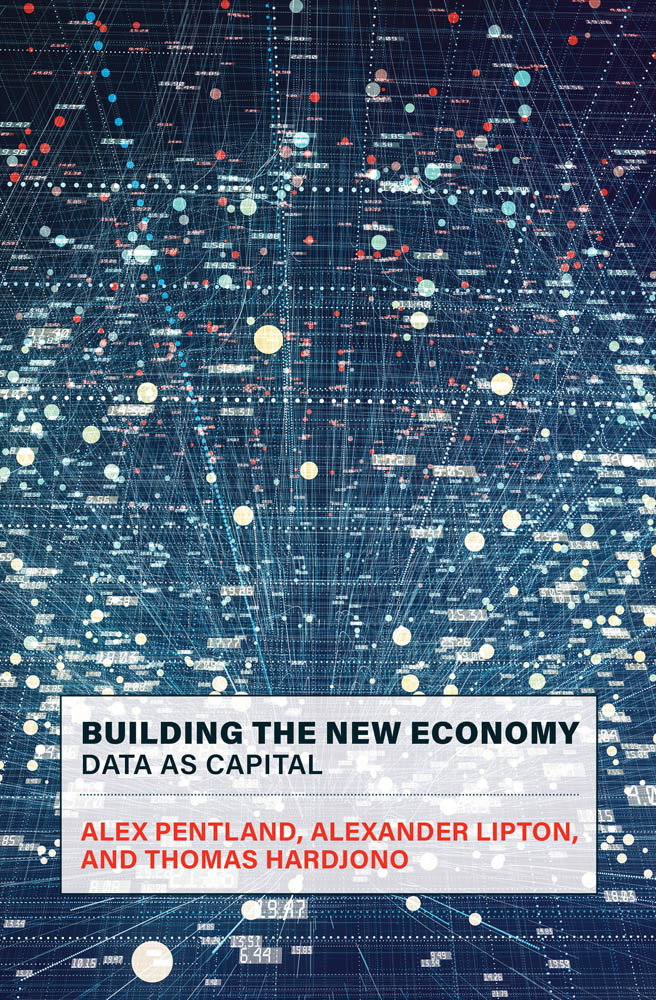
BUILDING THE NEW ECONOMY
Data as Capital
ALEX PENTLAND, ALEXANDER LIPTON, AND THOMAS HARDJONO
MIT Connection Science & Engineering
connection.mit.edu
The MIT Press
Cambridge, Massachusetts
London, England
2021 Massachusetts Institute of Technology
All rights reserved. No part of this book may be reproduced in any form by any electronic or mechanical means (including photocopying, recording, or information storage and retrieval) without permission in writing from the publisher.
The MIT Press would like to thank the anonymous peer reviewers who provided comments on drafts of this book. The generous work of academic experts is essential for establishing the authority and quality of our publications. We acknowledge with gratitude the contributions of these otherwise uncredited readers.
Library of Congress Cataloging-in-Publication Data
Names: Pentland, Alex, 1952 author. | Lipton, Alexander, author. | Hardjono, Thomas, author.
Title: Building the new economy : data as capital / Alex Pentland, Alexander Lipton, and Thomas Hardjono.
Description: Cambridge, Massachusetts : The MIT Press, [2021] | Includes bibliographical references and index.
Identifiers: LCCN 2021000483 | ISBN 9780262543156 (paperback)
Subjects: LCSH: Digital currency. | Blockchains (Databases) | Economic history21st century.
Classification: LCC HG1710 .B85 2021 | DDC 332.4dc23
LC record available at https://lccn.loc.gov/2021000483
d_r0
CONTENTS
- Alex Pentland
- Alex Pentland and Thomas Hardjono
- Jos Parra-Moyano, Karl Schmedders, and Alex Pentland
- Thomas Hardjono and Alex Pentland
- Charles Chang
- Alexander Lipton, Thomas Hardjono, and Alex Pentland
- Thomas Hardjono, Anne Kim, and Alex Pentland
- Alexander Lipton, Thomas Hardjono, and Alex Pentland
- Shahar Somin, Goren Gordon, Alex Pentland, Erez Shmueli, and Yaniv Altshuler
- Alex Pentland and Thomas Hardjono
- Alexander Lipton, Aetienne Sardon, Fabian Schr, and Christian Schpbach
- Thomas Hardjono, Alexander Lipton, and Alex Pentland
- Thomas Hardjono, Alexander Lipton, and Alex Pentland
- Alex Pentland
List of Figures
Scatter plot of the number of unique shop categories within a neighborhood versus total inflow volumes of visitors in each neighborhood in Istanbul.
Diversity of consumption (above) and year-on-year economic growth (below) for neighborhoods within the city of Beijing. The diversity of consumption (or the diversity of visitors) predicts up to 50 percent of the variance in year-over-year economic growth for Beijing as well as for US and EU cities. Source: S. K. Chong, M. Bahrami, H. Chen, S. Balcisoy, B. Bozkaya, and A. Pentland, Economic Outcomes Predicted by Diversity in Cities, EPJ Data Science 9, no. 1 (2020).
Diversity of consumption versus year-over-year growth in GDP in Istanbul after controlling for population density, housing prices, and the geographical centrality. Source: S. K. Chong, M. Bahrami, H. Chen, S. Balcisoy, B. Bozkaya, and A. Pentland, Economic Outcomes Predicted by Diversity in Cities, EPJ Data Science 9, no. 1 (2020).
More skill connectivity between jobs increases employment resilience. Source: E. Moro, M. R. Frank, A. Pentland, A. Rutherford, M. Cebrian, and I. Rahwan, Universal Resilience Patterns in Labor Markets (forthcoming).
Overview of the data cooperative based on the MIT open algorithms principles.
Overview of the digital music licensing supply chain.
The data cooperative distributed ledger for metadata management.
Overview of a cooperative copyright license management ledger and smart contract.
Summary of the creation metadata and registry metadata, where (a) the full creation metadata is placed in the decentralized replicated repositories and (b) a shorter registry metadata is recorded on the ledger, with a link (or hash) pointing to the full creation metadata permitting future verifications of the authenticity of the creation metadata.
Replicated metadata repositories with linked keywords and tags indexing.
Summary of parts of (a) the creation metadata and (b) the registry metadata, where separate index/search databases (c) may be created and where the actual sound recording files are placed into protected storage (d).
Illustration of a transaction in a block containing registry metadata (gray fields).
Example of search and metadata lookups.
The three layers of the future digital music ecosystem.
The largest real estate tokenization to date, raising 120 million euros.
ArtPi Art Exchange (China) allows investors and collectors to trade art as if it were stock.
SharesPost is leading the way in the tokenization of nonlisted shares.
Infrastructure projects can be ecosystem-financed using tokenization (not actual project pictured).
Tradecoin entities.
The assets ledger, coins ledger, and eCash tracking ledger.
Converting assets to coins.
Pushing coins into circulation.
Pulling coins from circulation.
Overview of the Tradecoin eCash tracking ledger.
The eCash tracking ledger flows.
Privacy-centric data architecture for health IT.
Overview of MIT open algorithms for algorithm-execution consent.
Overview of federated consent management.
Overview of the MIT open algorithms using secure MPC on the back end.
Overview of the MIT open algorithms using Enigma on the back end.
Overview of the MIT open algorithms using secure enclaves.
Traditional methods of data analysis use unfederated architectures (a), whereas OPAL frameworks use federated architectures (b).
Results from traditional PCA methods (a) had the same distributions when done in a federated architecture (b).
A sketch of a transaction between Alice and Bob, in which Alice sends Bob US$100.
A sketch of a transaction between Alice and Bob, in which Alice sends Bob 100 pounds.
A sketch of a transaction between Alice and Bob, in which Alice sends Bob a bitcoin (BTC).
A sketch of a transaction between Alice and Bob in which Alice sends Bob 100 FBDCs.
Balance sheets of a fractional reserve bank (a) and a narrow bank (b).
Assets of the Federal Reserve Bank. Source: Federal Reserve.
Liabilities of the Federal Reserve Bank. Excess reserves kept by commercial banks have increased enormously since 2008. Source: Federal Reserve.
Number of weekly active wallets and transaction volume.
Analysis of Ethereum network dynamics for a two-year period from February 2016 to June 2018. The network nodes are wallets, and edges are formed by buy and sell transactions. The outgoing degree of a node reflects the number of unique wallets receiving tradable securities (tokens) from that node, and vice versa for the incoming degree. Both outgoing and incoming degrees have a power-law distribution, similar to what was demonstrated in the analysis of mobile phone, citation data, and many other real-world networks (see, e.g., M. E. Newman, The Structure and Function of Complex Networks, SIAM Review 45, no. 2 (2003): 167256).
Ethereum transaction network temporal development, demonstrating the underlying consolidation process the network undergoes. Evolution of the incoming degree distribution, 



